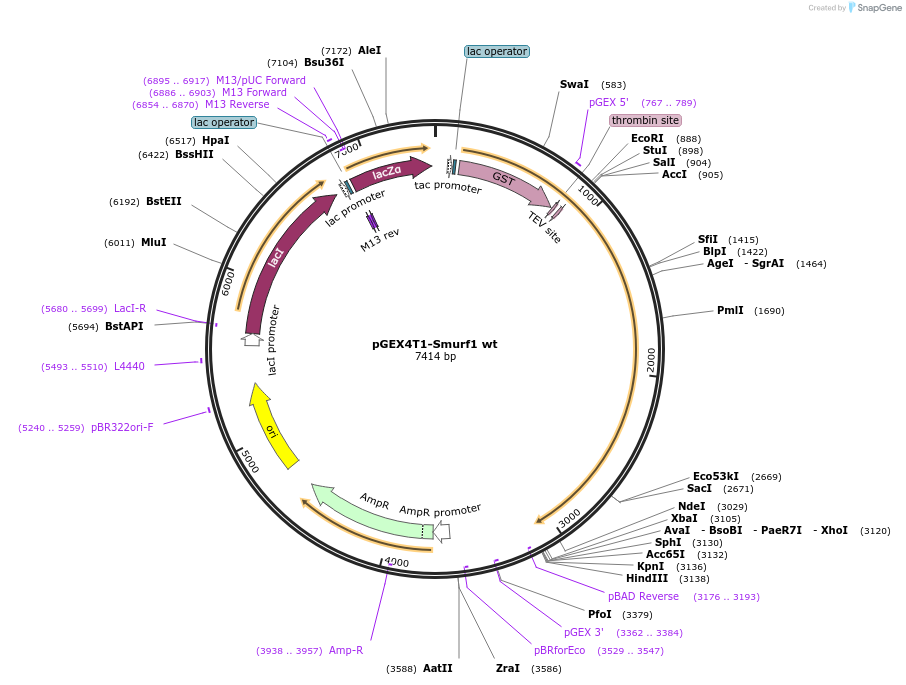-
Depositing Lab
-
Publication
-
Sequence Information
Ordering
| Item | Catalog # | Description | Quantity | Price (USD) | |
|---|---|---|---|---|---|
| Plasmid | 13502 | Standard format: Plasmid sent in bacteria as agar stab | 1 | $89 * | |
* Log in to view industry pricing.
Backbone
-
Vector backbonepGEX-4T1
- Backbone size w/o insert (bp) 4900
-
Vector typeBacterial Expression
Growth in Bacteria
-
Bacterial Resistance(s)Ampicillin, 100 μg/mL
-
Growth Temperature37°C
-
Growth Strain(s)DH5alpha
-
Copy numberHigh Copy
Gene/Insert
-
Gene/Insert nameSMURF1
-
SpeciesH. sapiens (human)
-
Insert Size (bp)2100
-
GenBank IDNM_020429
-
Entrez GeneSMURF1
-
Tag
/ Fusion Protein
- GST (N terminal on backbone)
Cloning Information
- Cloning method Restriction Enzyme
- 5′ cloning site SalI (not destroyed)
- 3′ cloning site XbaI (not destroyed)
- 5′ sequencing primer pGEX 5'
- (Common Sequencing Primers)
Resource Information
-
Article Citing this Plasmid
Terms and Licenses
-
Academic/Nonprofit Terms
-
Industry Terms
Trademarks:
- Zeocin® is an InvivoGen trademark.
Depositor Comments
Vector has TEV site.
A human Smurf1 cDNA encoding all but the first eight amino acids was identified in the expressed-sequence-tag database (AA292123), and full-length hSmurf1 was reconstituted using a fragment of XSmurf1 cDNA encoding the first eight amino acids.
These plasmids were created by your colleagues. Please acknowledge the Principal Investigator, cite the article in which the plasmids were described, and include Addgene in the Materials and Methods of your future publications.
-
For your Materials & Methods section:
pGEX4T1-Smurf1 wt was a gift from Jeff Wrana (Addgene plasmid # 13502 ; http://n2t.net/addgene:13502 ; RRID:Addgene_13502) -
For your References section:
A SMAD ubiquitin ligase targets the BMP pathway and affects embryonic pattern formation. Zhu H, Kavsak P, Abdollah S, Wrana JL, Thomsen GH. Nature. 1999 Aug 12. 400(6745):687-93. 10.1038/23293 PubMed 10458166



